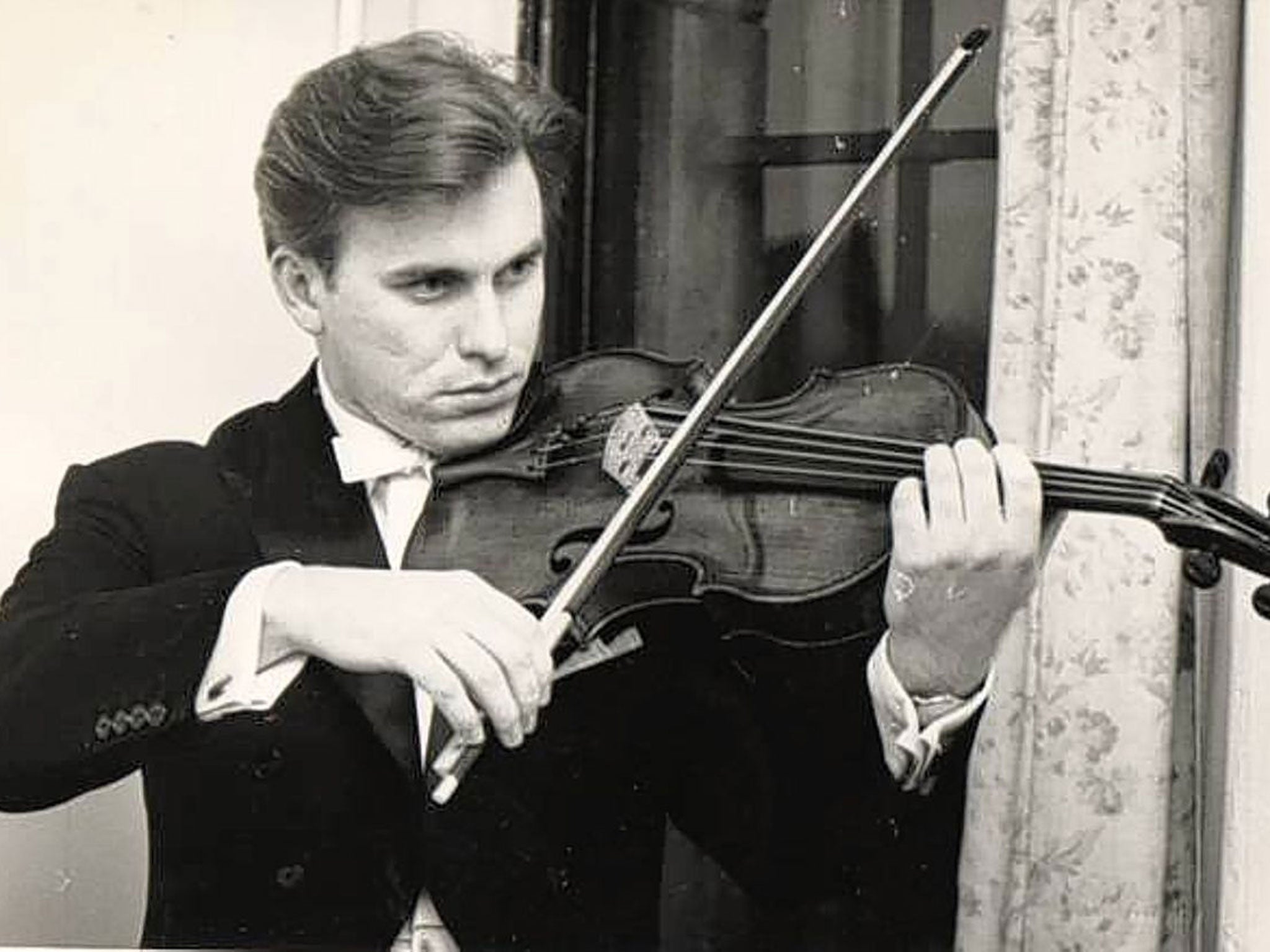Roger Best is described in the Anthology of British Viola Players as being a case of "talent will out". Although born in modest circumstances, by virtue of his hard work and musical talent he rose to be regarded as one of the best viola players of his generation.
He was born in Liverpool in the 1930s to a "theatrical" family. His parents had both been entertainers in music hall and variety theatre; his father had been in a pierrot troupe as a singer and dancer and his mother had also been a dancer. His grandfather was an impresario. But by the time his older brother Peter was born, followed by Roger a few years later, circumstances were hard.
His parents were none the less determined to give their sons the chance to develop their musical talents, scrimping and saving for piano lessons for Peter and singing lessons (and later violin lessons) for Roger. When his parents could no longer afford to pay for violin lessons, Roger's teacher continued to teach him free of charge for two years. At the age of 11 he won a scholarship to the Liverpool Institute, where he was allowed to focus exclusively on his musical talent and where he was a near contemporary of Paul McCartney and George Harrison.
Like many teenagers in 1950s Liverpool Best benefited from the vibrant and creative postwar atmosphere in the city. The relentless bombing had bred a resilience in the people and nurtured a laconic, quick wit. Roger and his brother played on bomb sites as children, and became teenagers with a (well-concealed) drive and determination to make the most of their talents.
The Liverpool Institute allowed Roger to focus exclusively on music and art: he recalled that he would go in by the school's main entrance, turn left into the music department and stay there all day. His chemistry teacher, an amateur musician himself, wrote a single sentence in his school report: "Music is Roger's thing."
Roger became a member of the National Youth Orchestra and won an open scholarship to the Royal Manchester College of Music (now the Royal Northern College of Music) at the age of 16 to study the viola with Paul Cropper. He eked out his grant doing odd gigs on tenor sax and guitar in a danceband and learnt the double-bass at short notice – on the train to the audition, in fact – in order to do a summer season.
Summer seasons and tours of the South coast with professional orchestras gave him a solid grounding in the life of a professional musician (one rehearsal and two performances a day, seven days a week). For a young man in his late teens it brought in a very good salary, with the thrill of being able to buy smart, fashionable clothes and shoes.
Sir John Barbirolli, conductor of the Halle Orchestra, came to his graduation recital; he went up to Best afterwards and said, "We'd be delighted if you would join us on Monday, dear boy." Two years with the Halle were followed by his appointment as principal viola in the (Royal) Northern Sinfonia.
During this period he featured as a soloist and concertos were written for him by Sir Malcolm Arnold, John McCabe and Richard Rodney Bennett. In 1972 he became a freelance session musician and in 1977 joined the Alberni Quartet, touring extensively in the UK and abroad, including China, Latin America and North America. His freelance sessions included music for films and television including the themes for Tinker Tailor Soldier Spy and Jane Eyre. He worked with a wide range of artists including Marc Almond, Phil Collins, Deep Purple, Shirley Bassey and his near-contemporary at the Liverpool Institute, Sir Paul McCartney. He once memorably described the audience at the Knebworth Festival as looking "like a sea of baked beans".
He made numerous recordings as a member of the Alberni and as a soloist, his recordings including Benjamin Britten's Lachrymae for viola and string orchestra, Vaughan Williams' Flos Campi suite for solo viola, chorus and orchestra and the Brandenberg Concertos with the Academy of St-Martin-in-the-Fields under Neville Marriner. He was appointed professor at the Royal College of Music in 1973 and this was followed by honorary appointments at the Royal Academy of Music and the Royal Scottish Academy of Music and Drama.
His calm, gentlemanly and laidback attitude concealed a stubborn and relentless perfectionism and awareness of the potential and possibilities that could be realised with hard graft. He loved all sports with a passion, particularly cricket and football; he also played croquet at national championships level. It was a game well-suited to his temperament, combining courtesy with killer instinct. He was a passionate and lifelong Liverpool FC supporter.
Best, who was twice married, firstly to Bronwen Naish, the double bassist and musical saw player, and then to the architect Susan Brown, is survived by five children and nine grandchildren.
Roger Best, viola player: born Liverpool 28 September 1936; married 1959 Bronwen Naish (marriage dissolved; three daughters, two sons), 1981 Susan Brown; died 8 October 2013.
Subscribe to Independent Premium to bookmark this article
Want to bookmark your favourite articles and stories to read or reference later? Start your Independent Premium subscription today.


Join our commenting forum
Join thought-provoking conversations, follow other Independent readers and see their replies